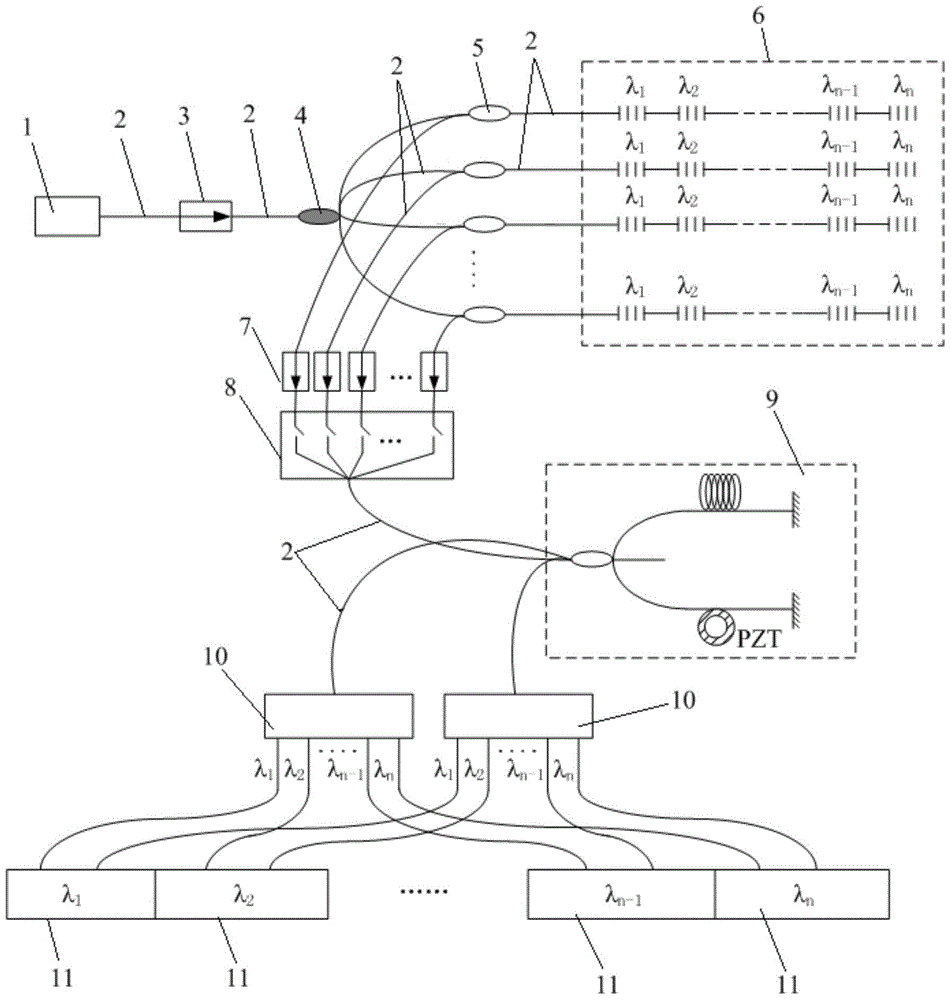Time-division and wavelength-division joint multiplexing method for fiber laser sensor
A fiber laser and time-division multiplexing technology, which is applied in the direction of using optical devices to transmit sensing components, the structure/shape of active media, etc., can solve the problems that the maximum number of multiplexing can only reach 16 array elements, single wavelength division multiplexing technology, etc.
- Summary
- Abstract
- Description
- Claims
- Application Information
AI Technical Summary
Problems solved by technology
Method used
Image
Examples
Embodiment Construction
[0019] Below in conjunction with accompanying drawing and specific embodiment the present invention is described in further detail:
[0020] The time-division and wavelength-division joint multiplexing method of an optical fiber laser sensor comprises the following steps:
[0021] (1) Construct a time-division multiplexing structure: use an optical switch to modulate the intensity of the output light of the fiber laser in m channels to generate a narrow pulse optical signal with a high extinction ratio to achieve channel selection, use an m×1 type optical switch or use m independent optical switches, cooperate with m×1 beam combiner to realize channel selection of m channels, and then build a time division multiplexing structure;
[0022] (2) Time-division and wavelength-division joint multiplexing: use the wavelength-division multiplexing method to construct an n-element fiber laser sensor linear wavelength-division multiplexing array in each time-division multiplexing channe...
PUM
 Login to View More
Login to View More Abstract
Description
Claims
Application Information
 Login to View More
Login to View More - R&D
- Intellectual Property
- Life Sciences
- Materials
- Tech Scout
- Unparalleled Data Quality
- Higher Quality Content
- 60% Fewer Hallucinations
Browse by: Latest US Patents, China's latest patents, Technical Efficacy Thesaurus, Application Domain, Technology Topic, Popular Technical Reports.
© 2025 PatSnap. All rights reserved.Legal|Privacy policy|Modern Slavery Act Transparency Statement|Sitemap|About US| Contact US: help@patsnap.com

